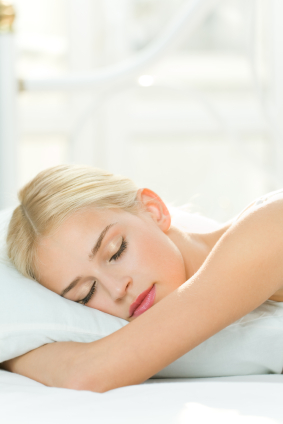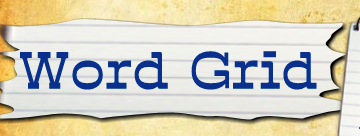 If you recall the 2002 film, Insomnia, you would remember Al Pacino’s character suffered from the sleep disorder that took a toll on both his physical appearance and mental stability.
If you recall the 2002 film, Insomnia, you would remember Al Pacino’s character suffered from the sleep disorder that took a toll on both his physical appearance and mental stability.
Globally, millions of individuals suffer from insomnia, some without even realizing the existence of their symptoms until years later. Unfortunately, sleep deprivation can lead to a myriad of negative physiological effects, including hallucinations, memory loss, headaches, hand tremors, increased blood pressure, increased risk of diabetes, and obesity.
There are means, however—granted we are not a Hollywood cop caught amidst a psychological thriller of murder and manipulation—that may help you hit your slumbers faster for a better night’s rest.
Here are 10 ways how:
1) Curb the Caffeine
Yes, everyone who has been telling you to kick the caffeine is correct. As the most widely used psychoactive drug worldwide, caffeine consumption is notorious for keeping you up at night. A previous study reported the negative effects of caffeine to include shortened total sleep time, prolonged sleep latency, and changes in duration of light and deep sleep1. Another study reported that coffee consumed close to bedtime can cause delayed onset of sleep, independent of total caffeine consumption throughout the day.
2) Exercise Regularly
Not only will you enjoy the aesthetic perks of a flatter tummy, but large epidemiological surveys have shown that the therapeutic and sleep promoting benefits of moderate, regular physical activity are well-accepted by the general public. However, it has been suggested that the beneficial sleep effects of exercise may only occur when it is conducted close enough to sleep to stimulate an ideal thermoregulatory sleep response but not too close to bedtime to have an altering or disruptive effect. General sleep hygiene recommendations have been to exercise 5–6 hours before bedtime but not closer than 3 hours.
3) Silence Your Phone
Who are you texting at night anyway? Unless it is an absolute emergency, get off your phone during bedtime. A recent study of Japanese adolescence found that the use of mobile phones for calling and sending text messages during sleeping hours are associated with shorter sleep duration, poor sleep quality, excessive daytime sleepiness, and insomnia symptoms. Sleep disturbances have also been associated with watching television, surfing the Web, and playing video/computer games at night.
4) Change Your Diet
It never gets old—softening your physical ailments by adjusting your diet is one of the most accessible measures you can control. Foods that are rich in magnesium and potassium (such as bananas) can help relax overstressed muscles that will get you snoozing quicker. Additionally, tryptophan is a compulsory ingredient for the body to produce serotonin, the neurotransmitter best known for inducing feelings of calmness and drowsiness. Foods rich in tryptophan include poultry (turkey and chicken), seafood (shrimp and fish), dairy products (milk and yogurt), and nuts and seeds (pumpkin seeds, cashews, almonds, and walnuts).
5) Abstain From Nicotine
You may think taking that extra smoke at night will help you relax, but in fact, the exact opposite is true. Sleep disturbances and insomnia complaints during times of nicotine withdrawal have been reported in up to 39% of cases. Furthermore, sleep disturbances and changes in REM sleep are common in depressive patients; and the presence of depressive symptoms has been associated with lower nicotine abstinence rates.
6) Keep Cool
Some evidence suggests that a trigger for sleep onset is the evening decline in body temperature, which is primarily mediated by increased peripheral skin blood flow for heat dissipation through dilation of blood vessels. Clinically, an association between impaired temperature downregulation and sleep has been demonstrated in several groups with sleep difficulties, including insomniacs, depressed patients and older individuals. While the professional recommendation is to keep the room between 65 and 72 degrees Fahrenheit, it is more important that the temperature is set at a level most comfortable to your needs.
7) Avoid Alcohol
The practice started with the armed forces in the defense line who suffered from sleeplessness, but the growing myth that a glass of alcohol before bed can lead to rapid sleep induction has now spread to the general masses. Although the initial wave of drowsiness may appear indicative of a quicker sleep time, alcohol is actually metabolized rapidly by the body; thus, lowering blood concentrations and often resulting in withdrawal symptoms thereafter. In fact, one previous study examining the effect of alcohol on sleep demonstrated that that drinking alcohol before bed decreased sleep duration and efficiency and increased the frequency of wake-ups during the night. These results were independent of any family history of alcoholism.
8) Turn Off The Light
Make sure not to doze off with the bedside lamp on after some nighttime reading. Research has demonstrated that exposure to electrical light between dusk and bedtime can strongly suppress melatonin levels, a hormone that hits its peak when a person is asleep. After observing healthy subjects who were exposed to room light or dim light for eight hours preceding bedtime, it was found that room light disrupts melatonin signaling and thus, may potentially impact one’s sleep-wake cycle.
9) Practice Breathing Exercises
Not only can deep breathing exercise help shift the mind away from worrisome thoughts, but it is good meditation practice to quiet the mind and calm the central nervous system. The key is to breathe—using your abdomen (not your chest)—through your nose for three seconds, then breathe out for three seconds. Also remember to concentrate on breathing technique and count rather than dwelling in your anxieties.
10) Relax
If your muscles are tense, your mind is alert, and you’re lying in an uncomfortable position, there is obviously minimal chance you will fall asleep with ease. Forget about yesterday’s problems and tomorrow’s worries and focus on the present. The important thing now is to get a good night’s rest so you are capable of tackling any challenge that may be thrown your way in the future.
Click Here For Article References:
1. Retey JV, Adam M, Khatami R, et al. A genetic variation in the adenosine A2A receptor gene (ADORA2A) contributes to individual sensitivity to caffeine effects on sleep. Clin Pharmacol Ther 2007;81:692-8.
2. Pantelios G, Lack L, James JE. Caffeine consumption and sleep. Sleep 1989;18:65.
3. Sherrill DL, Kotchou K, Quan SF. Association of physical activity and human sleep disorders. Arch Int Med 1998; 158: 1894–1898.
4. Vuori I, Urponen H, Hasan J, Partinen M. Epidemiology of exercise effects on sleep. Acta Physiol Scand 1988; 133 (Suppl. 574): 3–7
5. Trinder J, Montgomery I, Paxton SJ. The effect of exercise on sleep: the negative view. Acta Physiol Scand 1988; 133 (Suppl. 574): 14–21
6. Shapiro CM, Allan M, Driver HS, Mitchell D. Thermal load alters sleep. Biol Psychiatry 1989;26: 736–740.
7. Morin CM, Hauri PJ, Espie CA et al. Nonpharmacologic treatment of chronic insomnia. Sleep 1999; 22: 1134–1156.
8. Munezawa T, Kaneita Y, Osaki Y, Kanda H, Minowa M, Suzuki K, Higuchi S, Mori J, Yamamoto R, Ohida T. The association between use of mobile phones after lights out and sleep disturbances among Japanese adolescents: a nationwide cross-sectional survey. Sleep. 2011 Aug 1;34(8):1013-20.
9. Paavonen EJ, Pennonen M, Roine M, et al. TV exposure associated with sleep disturbances in 5-to 6-year-old children. J Sleep Res. 2006;15:154–61.
10. Higuchi S, Motohashi Y, Liu Y, et al. Effects of playing a computer game using a bright display on presleep physiological variables, sleep latency, slow wave sleep and REM sleep. J Sleep Res.2005;14:267–73.
11. Peuhkuri K, Sihvola N, Korpela R. Diet promotes sleep duration and quality. Nutr Res. 2012 May;32(5):309-19.
12. Jaehne A, Loessl B, Bárkai Z, Riemann D, Hornyak M. Effects of nicotine on sleep during consumption, withdrawal and replacement therapy. Sleep Med Rev. 2009 Oct;13(5):363-77
13. Murphy PJ, Campbell SS. Nighttime drop in body temperature: a physiological trigger for sleep onset? Sleep 1997; 20: 505–511.
14. Krauchi K, Cajochen C, Werth E, Wirz-Justice A. Warm feet promote the rapid onset of sleep. Nature 1999; 401: 36–37.
15. Glotzbach SF, Heller HC. Temperature Regulation. In: Kryger MH, Roth T, Dement WC (eds). Principles and Practice of Sleep Medicine. Philadelphia: W.B. Saunders Co. 1994, pp. 260–275.
16. Arnedt JT, Rohsenow DJ, Almeida AB, Hunt SK, Gokhale M, Gottlieb DJ, Howland J. Sleep following alcohol intoxication in healthy, young adults: effects of sex and family history of alcoholism. Alcohol Clin Exp Res. 2011 May;35(5):870-8.
17. Gooley JJ, Chamberlain K, Smith KA, Khalsa SB, Rajaratnam SM, Van Reen E, Zeitzer JM, Czeisler CA, Lockley SW. Exposure to room light before bedtime suppresses melatonin onset and shortens melatonin duration in humans. J Clin Endocrinol Metab. 2011 Mar;96(3):E463-72.
Image Source: iStockphoto/g_studio
Amy Wong, MS, is a medical writer and conducts traumatic brain injury research at St. Michael’s Hospital, a large academic institution located in Toronto, Canada. She holds a Master’s of Science from the University of Toronto under the department of Pharmacology. Her studies pertained to the selective field of neuropsychopharmacology examining the biological implications of post-stroke depression. Outside of brain injury research, Amy is also involved with cancer research at the University Health Network. Currently, she is examining both genetic and environmental factors that influence individual susceptibility to hepatocellular carcinoma risk.















White noise generated from a small electric fan (or even computer generated and played through reasonable speakers) drops me off to sleep within minutes of getting horizontal. If I’m still awake after 10 minutes then I’ll… zzzzzzzzzzzzzzz.
Other than the tips above; if you still cannot sleep; change your pillow for one which has a pair of loudspeakers built in to it (about £20); plug into any radio or music player. Having left the radio station (I use Radio 4) on; switch it on. If the program is boring; you may fall asleep; or you can change the station. If the program is interesting, strangely you may still fall asleep. If it is interesting and you do not fall asleep; it does not matter. You will be happier being pleasantly occupied rather than just laying there worrying that you cannot sleep. A happier person stands a much better chance of getting to sleep.
“9) Practice Breathing Exercises” should read: “9) Practise Breathing Exercises”
Admitted. US English of the verb “practise” is spelt “practice”, but, hey! someone’s gotta maintain the line!?!
US English = “practice”
International English, (everywhere else) = “practise”
(Verb-form, that is…)
I wouldn’t be too worried about your spelling, the point of this exercise is to share what works best for individuals to fall asleep so that others may benefit or have an alternative to assist with the problem of insomnia. However I do commend you on your use of the English language as it is sadly lacking these days, so sad as it can be a very beautiful language if used and understood in the way it was created
I fall asleep on my front… before I listen some music.. if you have a cough, rub some vic cream on the back of your feet put some socks on, get under your covers, within 5 min your cough should stop… works for me!
Daniel
UK .
I find the best way to fall asleep is to try and stay awake. I play an episode of my favorite tv show on my Sony Dream Machine and set it to sleep in 20 mins. I’m out fast. Works better than white noise. This is after being an insomniac for decades and a bedtime reader. Lucky if I can read a single chapter these days. A set bedtime routine helps, it’s not just for kids!
Two things people need to know: 1. Your doctor or a nurse would tell you that you MUST go to the bathroom/toilet just before sleeping. Because the medical fact is, if the bladder is distended, you will stay awake, or wake up again a short while after sleep. 2. If you keep moving and changing your sleeping position, you won’t drift to sleep.
A handy hint: if you are wanting to sleep and are ready to sleep, think the word: REST, 9 times over, think that, later you will drift to sleep quicker.
Do NOT think of work: or your subconcious mind will keep you awake so you can work (you thought it, didn’t you?) so if you think of work, counteract that with “unwork awhile” 7 times over. Do NOT think of tomorrow (or your inner mind will say: ok, I’ll stay awake so you can work tomorrow): so think to counteract that and still get to sleep with: “I am in the present time, I am in the present time” yet think it 7 times.
These things have become a positive bonus, a plus, for one insomniac who didn’t know why the insomnia was worse, until someone said: “you were thinking of work in the morning, so your body and inner mind reacted to say: “go to work, right now…” so the patient became sleep-deprived and wondered if she was insane. Sleeping pills did little if anything. I hope these tactics will work on anyone.
I keep a laptop beside my bed and when I settle down, I start up a podcast. Any subject will do, as long as it’s a man’s voice droning.
I’m fast asleep in no time!
I find resting on one or two miracle balls (Google miracle balls if you have never heard of them) for 10 minutes minimum just before bedtime makes a huge difference to how long it takes me to fall asleep after getting into bed. Its a very effective way to relax.